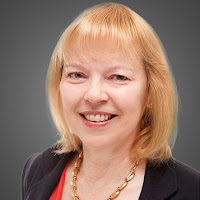How Can Music Inspire Our Writing - by SC Skillman
There are so many different ways in which writers could answer this question: Nick Hornby's answer for his novels High Fidelity and About a Boy would vary from Tim Bowler's answer for his novel Starseeker; and Phil Rickman's answer for a major character in his Merrily Watkins series.
Music has also played a role in my latest novel, currently with publishers. In Director's Cut, the main protagonist Dylan is a gifted young pianist (based upon a boy I knew at school). Dylan is also a very misunderstood character, sees himself as the odd one out, and feels under-appreciated by his own family and by his contemporaries. Music inspired me for Dylan as I have known several hugely talented pianists during my life, and they have all made a big impact on me at various life stages.
An essential quality for great musicians is versatility; the power to adapt and appeal to many across boundaries of culture, class, and circumstance.
For Director's Cut I was investigating "creepy organ music" for another of my characters. My research led me through discussions of ideal musical choices for Halloween, onto music for funerals and then for weddings. One piece of music came up in all three categories: Bach's Toccata & Fugue in D Minor. That's versatility for you!
This music is regarded as "creepy" because it is favoured by the most famous vampire of all. What could be a more suitable candidate for Halloween than "the faint sounds of a pipe organ being played feverishly by Count Dracula himself." The image of the lone organist complements the idea of: "an evil psychotic sitting in a hallowed place invoking the devil himself via some unholy musical ability."
I do think this is an unfortunate association when most lone organists in churches and cathedrals are simply getting the chance for some practice without anybody listening in!
Also it is ironical as Bach himself was a devout Christian, and it does give cause for speculation on why the poor man's most beloved piece of music should be hijacked by the Gothic fraternity to such an extent. Nevertheless, there we have it: any creative work is given to us so we may make what we like of it. Personally the Toccata and Fugue in D Minor is one of my all-time favourites. I'm not saying I play it all the time when I'm writing, but it certainly works well when the time is right!
Sinister, sublime, fearful, demonic, uplifting - one musical work means all these things to different people. Some deem it suitable for a wedding while others may opt for it in the context of a funeral. Even more amusingly, however, in my eyes, is when those who write organists' guidelines for official websites lament the difficult of persuading the family of the deceased that the favourite song of the departed may not be the most suitable choice, but still have to give in, as the most popular funeral choice is apparently "Always Look on the Bright Side of Life" followed closely by "My Way."
I was able to use these discoveries in the development of at least two characters in Director's Cut. In this way, online research can take you off on divergent paths that may end up connecting with each other in the end: one reason why research for novels can be so enjoyable and creative in itself. Fiction writers: have you found that music has influenced or inspired you at all in the development of your novels and short stories? Please let me know in the comments.
SC Skillman writes psychological and paranormal mystery fiction, and also non-fiction books on Warwickshire for history publisher Amberley. These include Paranormal Warwickshire, Illustrated Tales of Warwickshire, and her latest, A-Z of Warwick. This last is due out in 2023. Her latest mystery novel Director's Cut is doing the rounds of publishers and she is working on the sequel.


Hi Sheila,it is as if you attended the conference in Cambridge! Anyway for me, classical music and many times, Christian music gives me inspiration. One genre in fiction writing that I have never tried is horror writing, especially dark ones.. The Director's cut, if I remember well had some mildly horror sides to it. For me, music also keeps the flow of writing at a continuous flow! Lovely post. Thanks and blessings.
ReplyDeleteThank you for your comment Sophia. I'm glad my observations tuned in (literally) to points made at the Cambridge conference! Also good to know you are inspired by music too.
DeleteA remember in Howard's End, the sisters listen to a classical concert, imagining all sorts of scenes to the music. It opened my eyes (or ears) to hearing it in a different way.
ReplyDeleteThese days, thanks to Scala Radio, I pay much more attention to film scores and how they help the story telling. Nomadland and 1917 are great examples of this.
There's some classical pieces by Alexis Ffrench that sound lyrical to me - and are now on a To Do List to see if I can write words to them.
That sounds a brilliant project Liz, to write words to pieces of classical music that inspire you. Film scores are an excellent example of how music works in synthesis with our imagination. There are so many powerful film and TV drama scores that are now an essential part of all that the stories mean to us. (E.g. the Harry Potter films and the Doctor Who TV drama episodes)
Delete